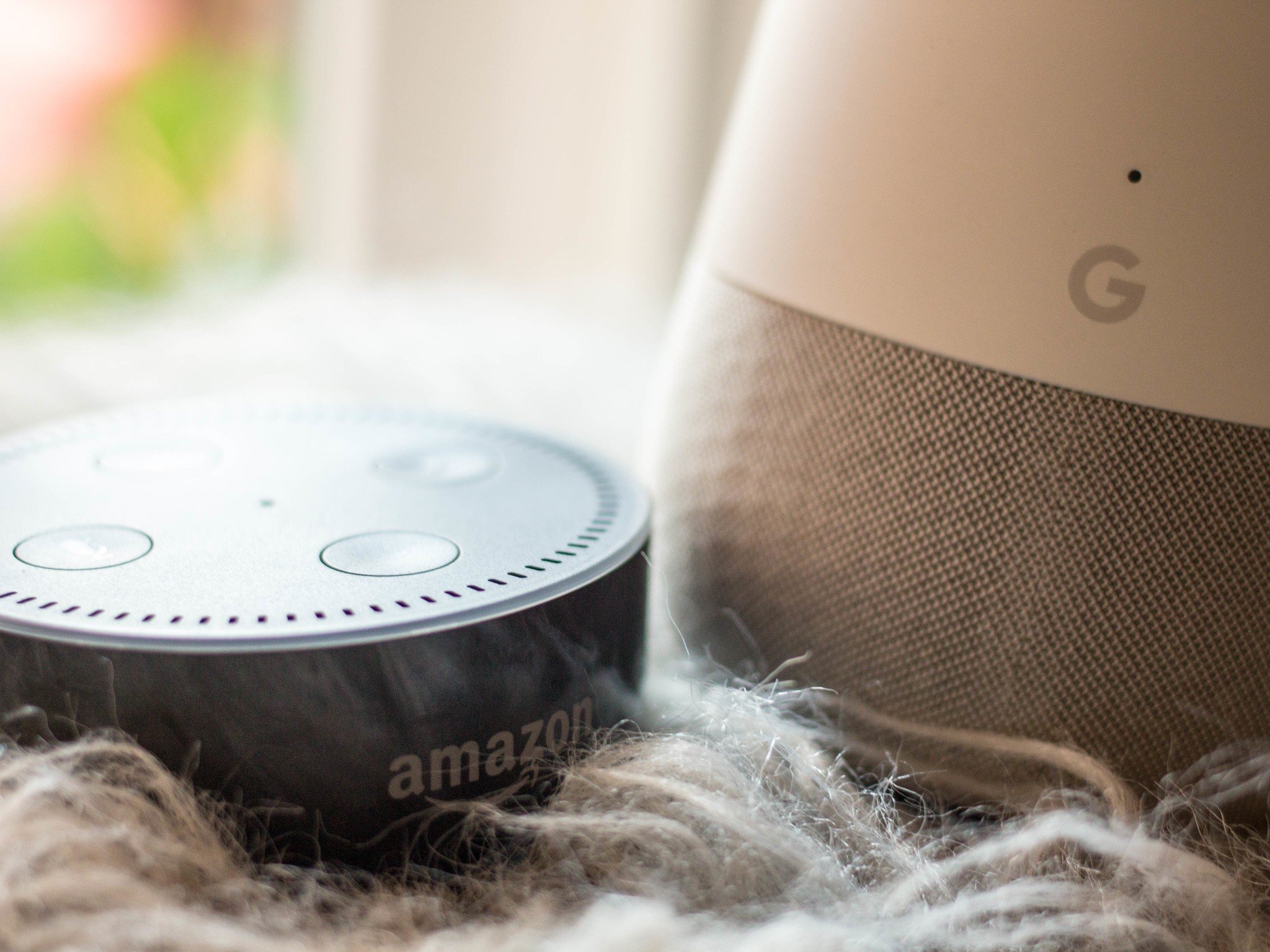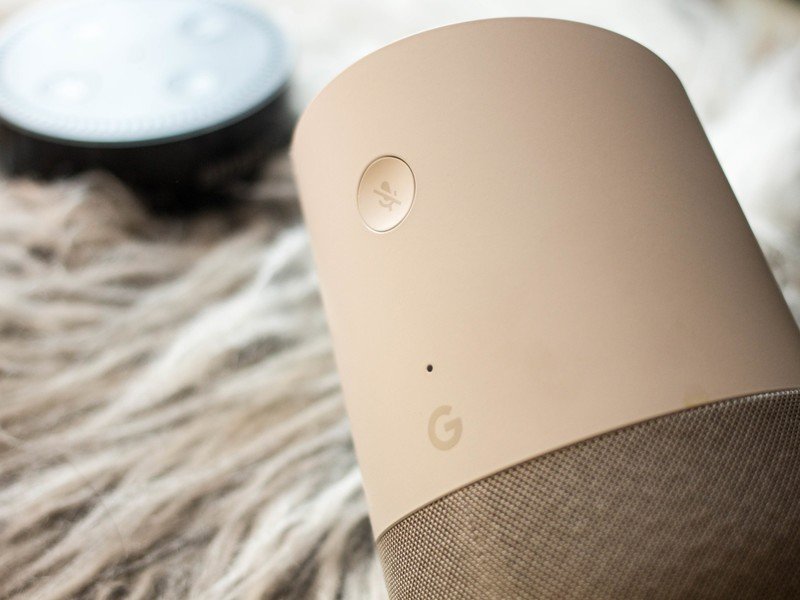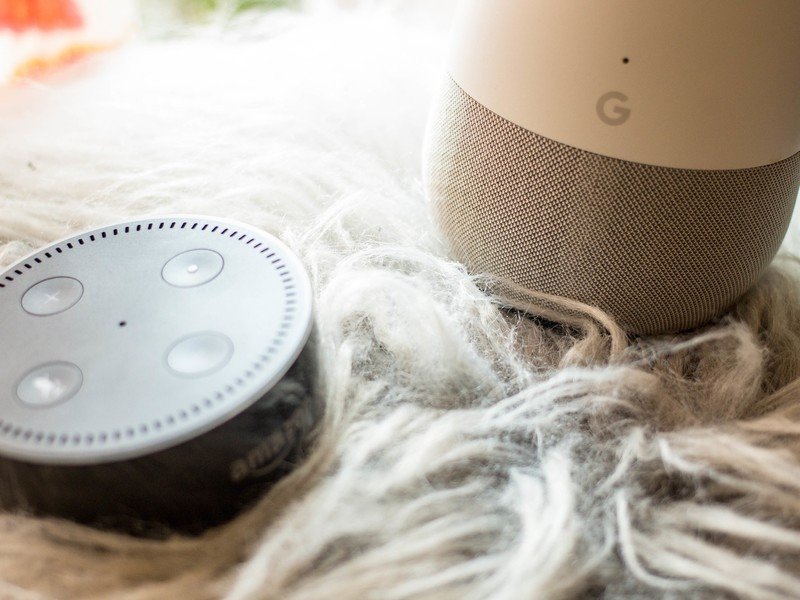Two platforms, one house: Choosing between Google Assistant and Amazon Alexa

I live in a multi-platform household. It's incredibly jarring at times, particularly when I find myself unable to choose between platforms. Do I stick to Google and its Assistant, because my devices are all Google-born and tied to the search engine's services? Or do I finally decide to make full use of my annual subscription to Amazon Prime? This is the conundrum I face.
I'm not just talking about connected speakers here: When you're choosing between a Google device and an Amazon product, you're choosing between two vastly different, robust ecosystems. Just as Google has its AI-driven assistant, Chromecast and Android TV platform, and a variety of integrated third-party services, so does Amazon offer its connected gadgets and library of content for anyone who is also excited by the idea of free two-day shipping. It's not just a product these companies are selling here; it's a lifestyle and the one you choose locks you into a rhythmic way of life where you rely on nothing but the services offered by your connected speaker.
I've been experiencing this myself as I recently bought an Amazon Echo Dot to accompany my two Google Home devices, just to add a bit more variety to my pitiable connected home. Granted, it's part of my job to use this stuff (especially considering Alexa is on smartphones now), but it's also helping me understand some of the core differences between Google's and Amazon's connected ecosystems.
Amazon buys you stuff
As if this wasn't clear from the beginning, the sole purpose of Amazon integrating more variety into its commerce is to sell you stuff. And it works marvelously! There's a reason the term "Daily Amazon" is a staple in some households.
I've spent months living with the Google Home and not once have I asked it to purchase anything. Conversely, the Amazon Echo Dot has become the shopping gadget; it's there when my husband and I are going crazy attempting to organize our lives by stocking up on necessities. We are that commercial you often see for Alexa.
The commercial you often see for Amazon Alexa.
It's not a bad thing; in fact, this might explain why Amazon is taking the lead. According to TechCrunch, though the Google Home sold well during last year's holiday season, it was the Amazon Echo Dot that maintained consistency throughout the first quarter the year:
Be an expert in 5 minutes
Get the latest news from Android Central, your trusted companion in the world of Android
Google Home also sold more units than the Echo Dot during the holidays, but just barely, accounting for 39 percent of unit sales versus Dot's 38 percent. The original Echo held a 21 percent share during this time.After the holidays, though, the Dot quickly caught up in terms of unit sales, topping Google Home with a 53 percent share compared with Home's 30 percent.
Connected speakers still aren't considered a mainstream household item, but the small sampling of data we do have shows that interest in increasing. I have no doubt the Amazon Alexa is the one that more people know about because now there are four different Amazon Echo devices to choose. That's four more chances to add Alexa into your home through a device that can also function as your main shopping portal.
Google works better with my stuff

I'm not a fan of the Alexa app. It's a tad tawdry, and when it comes to visuals and third-party integration, I find it easier to navigate the Google Home app. Perhaps it's because I'm used to the Google-fied way of life and the way that the menu structures and apps are laid out, but there's something about Alexa's gray-hued interface that feels unrefined.
I've yet to delve into the smart home components of the Alexa app, which is what The Wirecutter suggests the Echo Dot is best used for, but the Google Home remains the one best suited for my living room because it has actual Chromecast integration. I can use voice commands to stream music through Soundcloud and play podcasts through Pocketcasts; the Google Home also integrates well with my multi-room audio setup, which helps when I'm setting up the ambiance for a dinner party.
They're both still a work in progress

In a test conducted by Gigaom last month, the results showed that often, Google Assistant and Amazon Alexa don't even answer questions the same way. Some of that has to do with the fact that these are two individual artificial intelligence platforms with their algorithms processing in the background. As a result, the manner in which you ask a question will have a different implication depending on your query.
According to 360i, in a test of 3,000 questions, Google Assistant answered 72 percent, while Alexa answered only 13 percent. But when I use either product, I find that my laziness in phrasing questions the proper way will net me an unfortunate result. Google Assistant and Alexa both require a present state of mind when you're interacting with it. Otherwise, you'll find yourself consistently repeating questions.
I'm looking forward to the day where I don't have to program either device with a service like IFTTT to prepare it for my laziness; I want to be able to shout out half a command and have Alexa and Assistant know what at I'm asking.
Which platform are you using?
The answer to whether Google Assistant or Amazon Alexa is the best as a home assistant is entirely relative. It's possible I can answer that after another few months of using the two connected devices, but I'm also not in a rush to figure it out. The platforms are both so nascent, but it's promising to see that sales numbers point to interest. Perhaps we'll have a clearer picture of which platform consumers like the best after this holiday season — and after Google brings those updates it previewed at Google I/O 2017.
Are you using a connected platform in your home? What do you love about it? Tell us in the comments!
Florence Ion was formerly an editor and columnist at Android Central. She writes about Android-powered devices of all types and explores their usefulness in her everyday life. You can follow her on Twitter or watch her Tuesday nights on All About Android.

